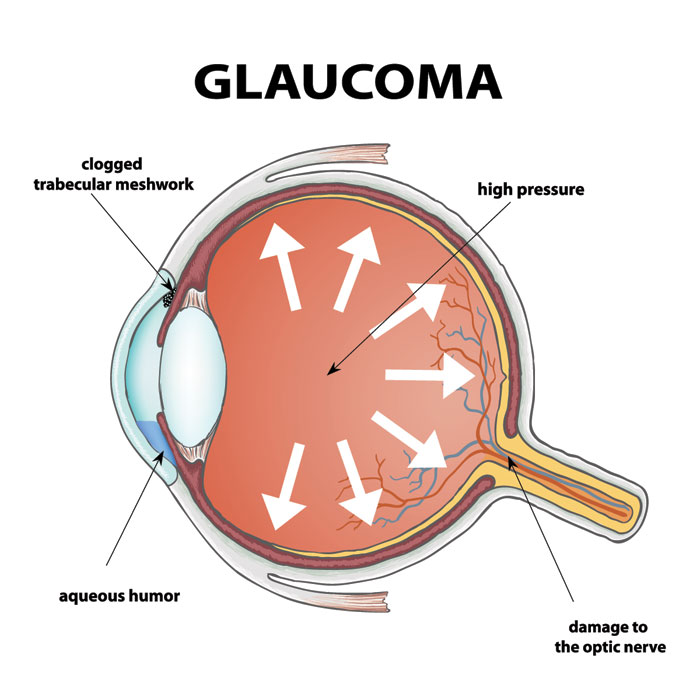Natural Remedies for Glaucoma: A Comprehensive Guide
Introduction
Glaucoma is a group of eye disorders that damage the optic nerve, often due to elevated intraocular pressure (IOP). If left unmanaged, glaucoma can cause irreversible vision loss and eventually lead to blindness.
While conventional treatments—like eye drops, oral medications, laser therapy, and surgery—are essential, many patients explore natural remedies for glaucoma as a complementary approach. This guide discusses scientifically supported natural options that may help reduce eye pressure and support overall eye health.
1. Dietary Changes and Nutritional Supplements
Nutrition plays a key role in maintaining optic nerve function and regulating intraocular pressure. Here are some dietary strategies that may help naturally support glaucoma management:
 Antioxidant-Rich Foods
Antioxidant-Rich Foods
Antioxidants protect your eyes from oxidative stress—a contributor to glaucoma progression. Focus on:
-
Leafy greens (e.g., spinach, kale)
-
Berries (rich in anthocyanins)
-
Citrus fruits
-
Carrots and sweet potatoes
These foods provide vitamins A, C, E, lutein, and zeaxanthin—nutrients essential for retinal and optic nerve health.
 Omega-3 Fatty Acids
Omega-3 Fatty Acids
Found in fatty fish (like salmon), flaxseeds, and walnuts, omega-3s have anti-inflammatory properties that may help reduce IOP and improve blood flow to the optic nerve.
 Bilberry and Blackcurrant Extracts
Bilberry and Blackcurrant Extracts
These berries are rich in anthocyanins, which may:
-
Support capillary strength
-
Improve night vision
-
Enhance circulation to the optic nerve
 Green Tea
Green Tea
Green tea is high in catechins, potent antioxidants that support retinal and vascular health. A daily cup may contribute to long-term eye protection.
 Coenzyme Q10 (CoQ10)
Coenzyme Q10 (CoQ10)
CoQ10 supports mitochondrial function in retinal cells. Some studies suggest that it may slow the progression of optic nerve damage in glaucoma when taken consistently with traditional treatments.
2. Herbal Remedies and Plant-Based Extracts
Herbal medicine offers several options with potential neuroprotective and pressure-reducing effects:
 Ginkgo Biloba
Ginkgo Biloba
Used for centuries, Ginkgo is believed to:
-
Increase ocular blood flow
-
Protect nerve cells from oxidative damage
-
Improve peripheral vision in some glaucoma patients
Caution: Ginkgo may thin the blood. Consult a doctor if you’re taking anticoagulants.
 Forskolin (Coleus forskohlii)
Forskolin (Coleus forskohlii)
An active plant compound shown to reduce intraocular pressure by:
-
Stimulating cyclic AMP (cAMP)
-
Improving aqueous humor outflow
Available in drop and capsule forms—ask your doctor about the safest option.
 Baicalein, Baicalin, and Wogonin (from Scutellaria baicalensis)
Baicalein, Baicalin, and Wogonin (from Scutellaria baicalensis)
These flavonoids offer:
-
Anti-inflammatory effects
-
Neuroprotection
-
Antioxidant support for optic nerve tissue
More research is ongoing, but these compounds show promise in early studies.
3. Lifestyle-Based Natural Treatments
Lifestyle modifications can complement medical treatment and help naturally lower eye pressure.
 Stress Reduction Techniques
Stress Reduction Techniques
Chronic stress may increase IOP. Consider:
-
Meditation
-
Breathwork
-
Mindfulness-based stress reduction (MBSR)
-
Yoga, especially restorative or gentle forms
These practices may also improve blood circulation to the optic nerve.
 Exercise
Exercise
Moderate aerobic exercise (e.g., brisk walking, swimming) 3–4 times per week has been shown to:
-
Lower intraocular pressure
-
Support cardiovascular and ocular health
Avoid inverted yoga poses or intense weightlifting, which can increase eye pressure.
 Acupuncture
Acupuncture
Some clinical trials suggest acupuncture may:
-
Improve ocular blood flow
-
Reduce IOP in select patients
Ensure you seek treatment from a licensed acupuncturist familiar with ophthalmic conditions.
4. Medical Marijuana and Glaucoma
Cannabinoids found in medical marijuana have demonstrated short-term IOP reduction in some patients. However:
-
The effect typically lasts 3–4 hours, requiring frequent use
-
Smoking is not recommended due to potential retinal damage
-
Legal status varies by region—consult your physician and review Philippine regulations before use
Medical cannabis should never replace traditional glaucoma therapies.
5. Precautions: When to Use Natural Remedies
While natural remedies can provide complementary support, they should not replace doctor-prescribed treatments.
 Always consult your eye doctor before trying:
Always consult your eye doctor before trying:
-
Herbal supplements (which may interact with medications)
-
Over-the-counter antioxidants
-
Alternative therapies like acupuncture
Monitoring your intraocular pressure, visual field, and optic nerve health is essential. Use natural remedies only as part of a comprehensive, supervised care plan.
Conclusion: Can Natural Remedies Help Glaucoma?
Natural remedies for glaucoma can help support eye health, reduce oxidative stress, and complement conventional treatments. However, they cannot reverse optic nerve damage or cure glaucoma.
The best approach is integrative:
-
Stick to prescribed medications or surgical plans
-
Use diet, supplements, and lifestyle changes to enhance eye function
-
Maintain regular eye exams with a glaucoma specialist


 Antioxidant-Rich Foods
Antioxidant-Rich Foods Omega-3 Fatty Acids
Omega-3 Fatty Acids Bilberry and Blackcurrant Extracts
Bilberry and Blackcurrant Extracts Green Tea
Green Tea Coenzyme Q10 (CoQ10)
Coenzyme Q10 (CoQ10) Ginkgo Biloba
Ginkgo Biloba Forskolin (Coleus forskohlii)
Forskolin (Coleus forskohlii) Baicalein, Baicalin, and Wogonin (from Scutellaria baicalensis)
Baicalein, Baicalin, and Wogonin (from Scutellaria baicalensis) Stress Reduction Techniques
Stress Reduction Techniques Exercise
Exercise Always consult your eye doctor before trying:
Always consult your eye doctor before trying:

